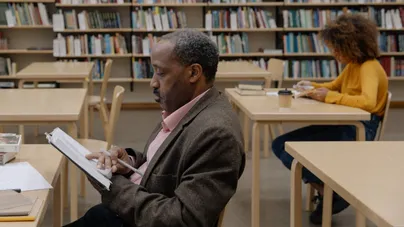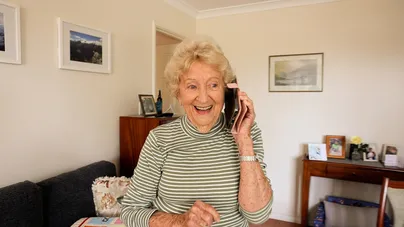A relationship with your grandchildren can be a rewarding experience that benefits the whole family. Here are some tips for nurturing that bond.
Building a relationship with your grandchildren takes communication, trust, and shared experiences. It may be tricky to navigate sometimes, but it can be worth it, too.
Grandparents have always played an important role in families. Often, it’s to help your children with parenting. But it can be even more meaningful.
It’s very likely your children and grandchildren will benefit from your involvement as a grandparent, and research suggests that you will too. Caring for grandchildren is shown to significantly improve mental health in older people.
Video: Time with Elsie
It is giving us more enjoyment. Making us more busy... But I'm happy.
— Myra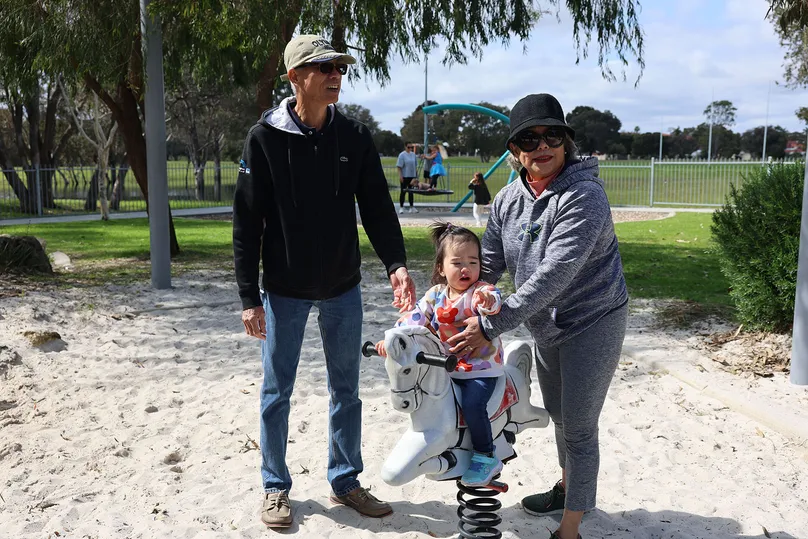
Click the play button to hear Myra and Salvador talk about their granddaughter, Elsie.
Here are 10 ways to bond with your grandchildren
1. Be a good listener
Pay attention to what your grandchildren tell you. Take the time to listen to their thoughts and feelings without judgment. This creates a supportive space.
It's easier to build a strong connection when you accept your grandchildren for who they are.
Be open to your grandchildren’s ideas and perspectives on life. Their opinions may be quite different to yours, which gives you both an opportunity to learn from each other.
2. Learn about your grandchildren’s interests
Being curious about your grandchildren's interests fosters a deeper connection.
Take an interest in their hobbies and activities. Whether it's sports, music, or a particular subject at school.
You could ask your grandchildren about their favourite books or television shows. Or you could ask them if they've made any artwork they can show you.
3. Embrace technology to connect
Your grandchildren are probably very comfortable with digital spaces, so the web could be a great place to meet them. You can connect with them more often by:
- Chatting face-to-face on video calls
- Instant messaging
- Sharing photos through social media
- Playing online games together
You can learn more about ways to digitally connect here.
Video: Staying connected
I dislike technology intensely. But I am stuck with it ... And I do realise the benefits of it all.
— Margaret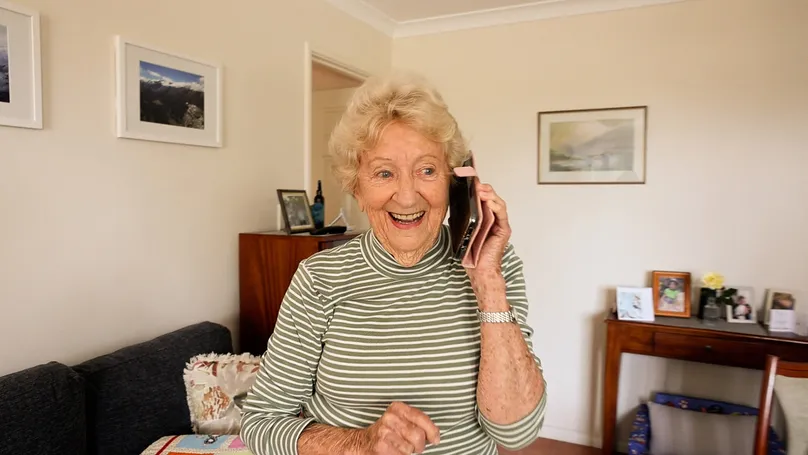
Click the play button to hear how Margaret uses her phone and iPad to keep in touch with faraway loved ones.
4. Share stories and memories
Share family stories, pictures, and heirlooms.
Tell stories from your own childhood or about your grandchildren's parents when they were young.
This helps to create a sense of family history. It can connect your grandchildren to their extended family.
5. Attend their events
Being at your grandchildren's important events shows your interest and support. It also connects you with their community. For example, you can attend:
- School plays
- Sports events
- Ballet recitals
- Celebrations
6. Make the effort to share good experiences
Quality time together helps to build a strong bond. Plan activities that you can enjoy together. For example:
- Baking
- Fishing
- Playing games such as board games, word games, or video games
- Supporting their sports and interests
7. Create traditions
Establish traditions. For example:
- Regular catch-ups to enjoy a special meal
- Yearly outings
- Holiday rituals
This helps to form lasting memories. It also gives your grandchildren something to look forward to.
Video: Baking apple pie together
Apple pie was just a regular thing. But it was so funny that Angus just took to it. This little boy, he was the first grandchild ... So that's how the apple pie thing started.
— Margaret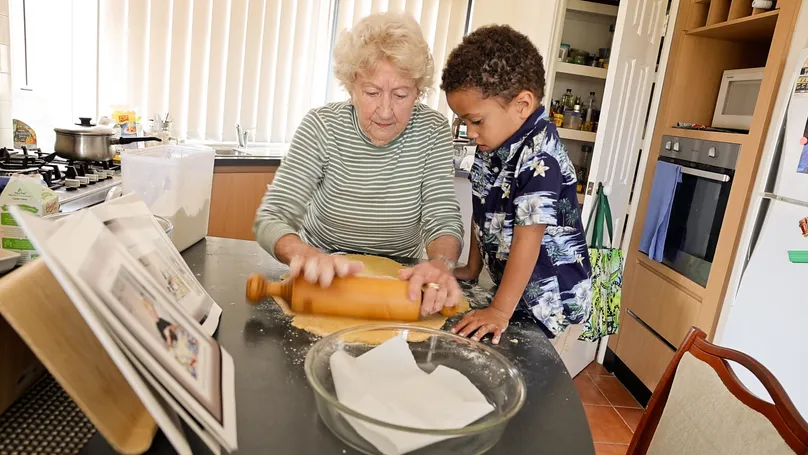
Click the play button to see Margaret and her great-grandson Isaac enjoy their holiday tradition of baking an apple pie together. This particular tradition with Margaret was passed down to Isaac from his father, Angus.
8. Teach your grandchildren something new
Share your skills and knowledge if they show an interest.
This can give you a future of quality time with your grandchildren.
It also helps them to gain skills and a sense of mastery.
They may want to learn how to cook a famous family recipe. Perhaps you could teach them to play a song they like on an instrument. You could teach them crafts like crochet, woodworking, or anything you enjoy.
9. Learn about your grandchildren’s friends
Be curious about your grandchildren’s friends.
Find out what they enjoy doing when they catch up with their friends.
This can show your grandchildren that you appreciate their inner lives. It shows them that you care about what and who they care about. You may even be able to impart some wisdom about resolving conflicts and caring for others.
10. Discover new interests together
Do something together that none of you have done before.
There are so many activities to try, like dancing, book clubs, arts and crafts.
For ideas and information, get in touch with one of our helpful team on 1800 951 971.
You can be a special part of your grandchildren's lives
Each grandchild is unique. It's important to tailor your approach.
Your full attention, flexibility, and patience is a precious gift.
It's unlikely that your grandchildren will receive this gift from anyone else. This is what can make you special to them.
More helpful information
If you need more information, take the LiveUp quiz or get in touch with one of our helpful team on 1800 951 971.
You can also find more tips and advice by following the links below:
- The four Bs that help kids bond with their grandparents | ABC News
- How to navigate the joys and challenges of grandparenting | Berkeley.edu
- How to help grandparents and grandchildren grow their bond | Relationships Australia NSW
References
Yang, X., & Yin, D. (2022). The Protective Effect of Caring for Grandchildren on the Mental Health of the Elderly: A Structural Equation Modeling Analysis. International Journal of Environmental Research and Public Health, 19(3), 1255. https://doi.org/10.3390/ijerph19031255
LiveUp provides free information to help you make informed decisions about your health. This information is for general and educational purposes only, is not intended to provide a comprehensive guide, and does not replace medical advice. Everyone is different, so some of these tips may work better for you than others. You should use your own judgment and seek medical advice when applying this information to yourself, to determine if it is suitable in your circumstances. Your use of, or reliance on, this information is solely at your own risk. Independent Living Assessment Incorporated is not responsible or liable for any injury, loss, or damage caused as a result of your use of, or reliance on, this information.
Download and print this article:
You can print out the PDF and stick it to your fridge or file away the tips to revisit at a later time.
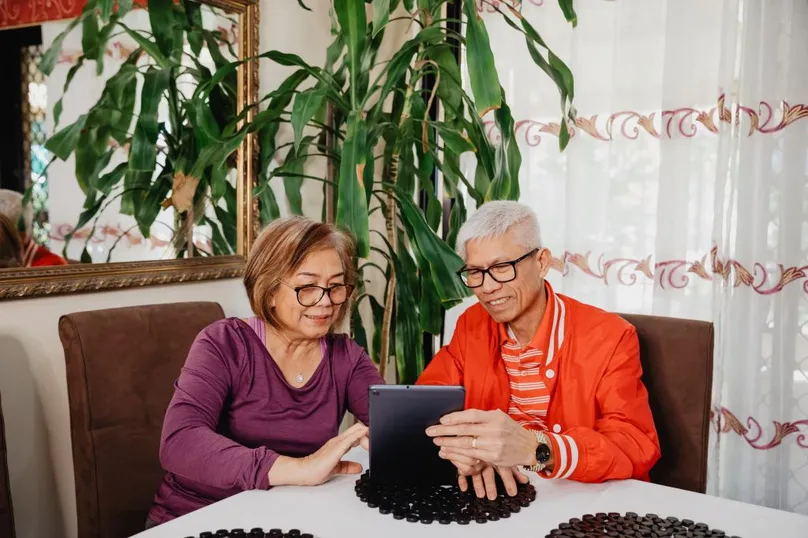
Read more Social articles
Did you enjoy this article? You may also like reading similar healthy ageing articles.
See all Social articles
